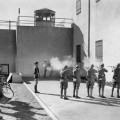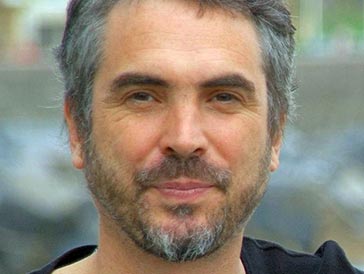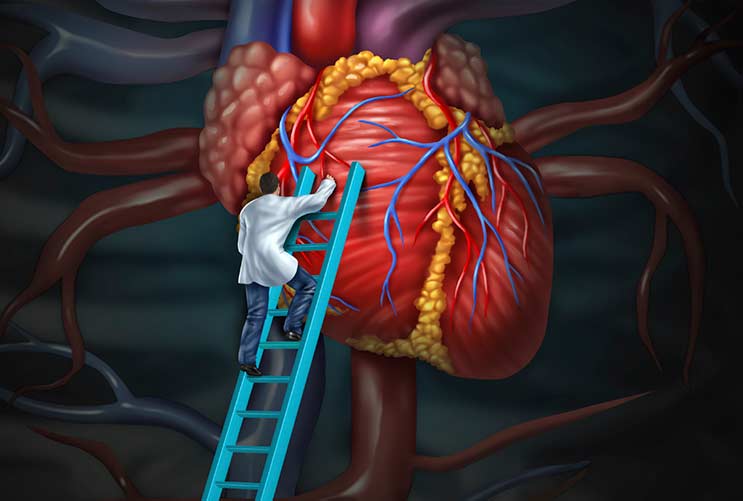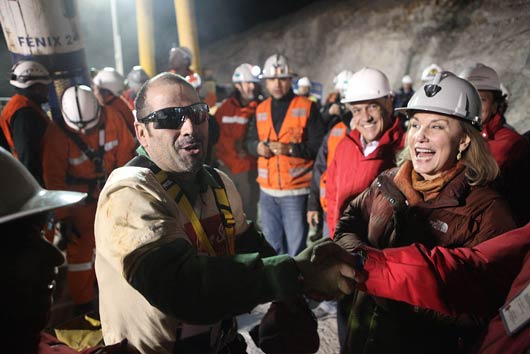
Editor’s Note: Elvira Valdivia is a mother of two, and wife of Mario Sepúlveda, one of 33 Chilean miners that began a harrowing 69 day underground ordeal starting on August 5th, 2010. Her husband was the second to emerge from the mine, and he did so with exuberance, bearing souvenirs and leading the crowd in chants of joy. He was quickly hailed as “the breakout star” and the press nicknamed him “Super Mario.” Elvira shares her personal journey, from the untold perspective of a wife and mother.
SANTIAGO, CHILE—Elvira Valdivia is a risk-taker and a plan-maker. She sacrifices for her plans and keeps at them, even when it means separating her family and living almost as a single mother for prolonged periods.
Her father was an electrician who worked the mines, but his was a job that required him to work underground only on occasion. However, it required that he be away from home for extended periods. He often missed special family gatherings, including Christmas, birthdays, and other celebrations. It was a life filled with loneliness, but one to which Elvira grew accustomed. “I had grown up with a mother who had to play the paternal role,” she says, “keep fighting and moving forward.”So when her husband, Mario Sepúlveda, told her about a new, risky job in a mine in the Northern Chilean city of Copiapó, she didn’t blink. Not once. She is, after all, a miner’s daughter.
In fact, it was Elvira’s father who introduced Mario to the world of mining, helping him make the appropriate contacts. Like his father-in-law, Mario started out as an electrician, but eventually took a job as a machine operator in the San José Mine in Copiapó. “I was not afraid,” Elvira says.
And then, on August 5, 2010, her whole life changed. As the rest of the world slowly began to watch the story of “Los 33” unfold, Elvira dropped everything, grabbed her two children, and made her way more than 500 miles from home to what would become known as “Campo Esperanza” or “Camp Hope” outside the San José Mine.
The risk-taker and plan-maker found herself without a clear sense of what to do next except to stay, pray, and make sure her husband was not forgotten at 2,300 feet underground.
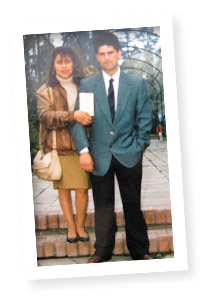 A SIMPLE START
A SIMPLE START
Elvira’s earlier life did not predict such upheaval. Together for 22 years, she and Mario met and fell in love in a simple, storybook manner: she was introduced to him at his sister’s house in the same neighborhood where she grew up, Pudahuel, a suburb of the capital city of Santiago.
“I liked his personality, how he flirted, his sense of humor,” she remembers. They started to date immediately. When life did throw a pleasant surprise her way—she became pregnant—the planner in her took it in stride; she and Mario moved in together and married a little later, after their baby, whom they named Scarlett, was born. They slowly began their humble life together in the same neighborhood where they first met.
Education was paramount to Elvira, known as “Katty” to her friends and family. So when Mario told her about a job in a precarious mine that paid double the normal wages, it seemed like a good deal. It would allow her to continue with her studies as an accountant while she worked at the accounting firm of Price Waterhouse Cooper in Santiago. By then the couple had two children—Scarlet, now 19, and Francisco, 14.
It was not until the morning of August 6th that Elvira received a phone call from a friend and classmate that alerted her to what had happened. After turning on the TV, making a series of phone calls, and finally determining that Mario was, in fact, one of the 33 trapped miners, Elvira found herself in Copiapó with her two children by her side. Her schooling and her life were put on hold. “I thought it would be a week, maximum,” she says. “I never, not for one moment, imagined it would go on for as long as it did.”
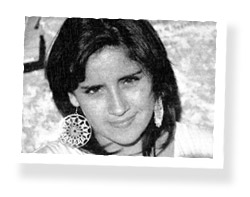 FAITH AND COMMUNITY
FAITH AND COMMUNITY
What helped her get through the excruciating two-month wait was a mix of her deep personal faith and her ability to use the resources around her. The Bible passage ‘Ayúdate que yo te ayudaré’ (‘God helps those who help themselves’) is the one she cites as giving her strength and hope. “I study the bible,” she says. “I have a very strong faith.”
In addition to her daily prayers, Elvira did far, far more than simply await the outcome. Elvira and many of the family members at the mines organized and made certain that the world did not forget about the 33 miners trapped underground.
“It was truly a team effort,” Elvira says of the press outreach that she and family members of the other miners engaged in. They were a constant presence at the mine, even before the government organized the camp and the rescue effort. “We all wanted our husbands rescued. We kept the pressure on.”
Elvira also found a source of strength from other miners who came to the camp, mineros who had not been on duty the day of the cave-in. “Talking to the other miners gave me hope,” she says. “They told me that there was water in there, that there was hope that Mario was still alive. For me, it was my deep spiritual fortitude and the strength from the [Camp Hope] community that helped me.”
In front of her children, Elvira never showed even the slightest hint of doubt. When her children asked if she thought their father was going to get out alive, she says, “I always answered, ‘Yes, absolutely!’ I always portrayed that certainty to them.”
It also may have helped that her husband, ever the joker, maintained his sense of humor throughout. When contact was first made with the miners weeks into the 69-day entrapment, Mario sent up a message asking rescuers to send down a blow-up doll for his younger comrades.
Only when she was alone did she allow herself to cry and occasionally, giving in to a sense of despair. “There were times that I cried by myself, all night,” she recalls. “[But] my anguish was very private. I always have been a very private person.”
A PUBLIC CELEBRATION
Then came October 12, 2010, and a very public celebration. Mario was the second miner to be rescued. People around the globe watched live coverage as the exuberant Mario burst out of the Phoenix capsule painted the red, white, and blue colors of the Chilean flag, hugged his wife, knocking her hard hat off her head. He hugged President Sebastián Piñera not once, but three times, and handed out gifts—rocks he’d brought up with him from the mine. Twice he led the crowds in the now familiar refrain of “Chi-chi-chi le-le-le, los mineros de Chile!”
In an interview soon after he emerged, Mario delivered what became the signature quote of the rescue effort: “I was with God and with the devil, and God took me.”
Away from the live coverage and cameras, Elvira recalls lots of touching. “We hugged. We cried. We kept touching him as if to prove that he was there and that he was really alive.”
LIFE POST-RESCUE
Today, the miners and their families are regularly sought after. Such is the case for her highly spirited husband, who at the time of this interview, was one of four miners in Washington, D.C. for the opening of a new, permanent exhibit at the Smithsonian National Museum of Natural History titled “Against All Odds: Rescue at the Chilean Mine.” The exhibit features some new video footage, mementos from the miners, the rescue capsule, and some rocks from the mine.
The once anonymous miners have become public personas, and the attention has had its effect on her family. “I don’t think that my children will be adversely psychologically affected by the attention—we discuss it often and openly,” she says. “But of course it is a change going from being anonymous to someone who is known. There are days where everyone wants to talk to Mario. Sometimes I wish I could go back to before it had all happened. There have been so many dramatic and sudden changes in our lives. But I have to stay in the present. This is my life now.”
“The present” includes handling the public scrutiny that is now a continuing reality for her family. Mario is among 31 of the 33 miners who recently filed a lawsuit against the Chilean government. The move has been somewhat controversial in Chile, as many Chilenos see the government as big heroes in the miner saga. The government spared no expense and brought in drilling experts from all over the world, including the United States, as well as specialists from NASA, to work together to free the miners.
“I supported this lawsuit and have done so since the beginning,” Elvira calmly states. “I think that the people who do not support the lawsuit are misinformed on what it is about. It is one thing that the government saved us—and I am eternally grateful for that—but the conditions that [the miners faced] and justice are something different. We are doing this so that it never happens again.”
Aside from the lawsuit, there is a toy line depicting their rescue and also “The Movie”—the production of which is a constant topic of conversation in Chilean media.
Elvira—along with her daughter, Scarlett—is featured in a book about the women of Camp Hope, Setenta Dias de Noche (Seventy Days of Night), by author Emma Sepúlveda.
SI SE PUEDE
Despite the movie, the lawsuit, and the media attention, Elvira’s life has changed in many ways, but stayed the same in others. No longer working as an accountant, Elvira helps to manage the family business. Elvira manages Mario’s motivational speaking invitations, as he has traveled extensively to countries like Mexico, Guatemala, and the States sharing his story and raising awareness about the conditions that miners face all over the world. On September 18 of this year—Independence Day for Chile—Mario and Elvira hope to launch a second business, a store that will feature Chilean products and food.
On the other hand, Elvira lives in the same house she had before, in the same neighborhood where she grew up. “We are not multimillionaires,” she says. But she and Mario are fortunate, as recent reports have indicated that a year after the mine collapse, many of the miners have not made a lot of money off of their ordeal. In fact, many of the 33 are unemployed, while a few have returned to working in the mines.
Elvira still holds down the fort while her husband is on the speaking circuit, and she helps him manage the media demands on his time. Thus, in many ways, she is continuing the role she saw her mother play while she was growing up: the planner and the risk-taker, facing life as the head of household for extended periods.
Elvira’s goals for her new life reflect her steadfast, quiet leadership style: to finish her education, to launch and grow the business, and most important, to savor the moment.
“Life changes dramatically from one minute to the next,” she says.
Her advice to any woman facing hardship is clearly born from observing her mother and from personal practice: “Be realistic, have strength and—no matter what—keep moving forward.”

